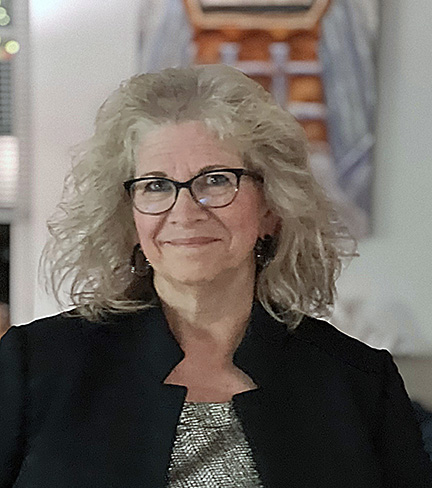
HARRISBURG, Pa. (May 2, 2024) — The Pennsylvania Bar Association (PBA) Plain English Committee will present its 2024 Clarity Award to Pamela Brightbill, administrative officer for the Pennsylvania Board of Pardons, Harrisburg, at an awards luncheon on May 9 during the PBA Annual Meeting in Hershey.
The charge of the Plain English Committee is to “reward and encourage efforts to improve access to the law by demystifying its language.” This “enable[s] lawyers to better counsel clients and increase[s] respect for the legal profession by removing the barriers of legalese.” While usually the award is given to a noted attorney or judge, this year’s award is given to an unsung hero of the justice system: a staff employee in Harrisburg.
Brightbill is receiving the PBA Clarity Award for her work to simplify the language on the Pennsylvania Board of Pardons Application for Clemency. In the past, many people who rightfully qualified for a pardon could not solve the morass of the application form. Under Brightbill’s leadership, the language of the application was transformed into plain English. She improved the justice system by allowing many people who legitimately qualify for a pardon to now understand the application and apply.
Since the application’s revision, the number of clemency applications from across the commonwealth went from 430 in 2017 to 2,173 in 2023. In addition, the Pennsylvania Continuing Legal Education Board has approved 50 pardon courses and awarded more than 1,000 continuing legal education credits to nearly 800 attorneys for those courses.
Currently, Brightbill is overseeing a project to ensure the online Application for Clemency will be accessible to individuals who experience challenges with computer literacy. The application is scheduled to launch in late 2024.
“The impact of the reforms extends far beyond the individuals applying for pardons,” said retired Judge Richard B. Klein, co-chair of the PBA Plain English Committee. “The way she simplified the forms galvanized support from diverse quarters, including paralegal programs, law schools and universities, faith communities, workforce development and recovery programs, and social service organizations. People are coming together everywhere to help their neighbors get a second chance.”